Sean Kalinich
Microsoft Send a Cupcake to Mozilla for Launching FireFox 6
 Apparently it has been something of a tradition for the Internet Explorer Team over at Microsoft to send a congratulatory pastry to FireFox with each new version they ship. However, now that Mozilla is pushing out a “new” release every six weeks the IE gang has shortened up on the size of the pastry. For their latest release MS sent over a small Cup Cake only. The running joke is that because of the smaller update the congratulatory gift is also smaller.
Apparently it has been something of a tradition for the Internet Explorer Team over at Microsoft to send a congratulatory pastry to FireFox with each new version they ship. However, now that Mozilla is pushing out a “new” release every six weeks the IE gang has shortened up on the size of the pastry. For their latest release MS sent over a small Cup Cake only. The running joke is that because of the smaller update the congratulatory gift is also smaller.
Mozilla’s new rapid release program is supposed to allow patches and fixes to get to market quicker without the normal delay of a major feature update. This decision by Mozilla has cause mixed feelings in the IT community and also the consumer market. Many feel that the short span is annoying and can be inconvenient. IE on the other hand is sticking with the larger full featured releases which, while some times better developed can also throw wrenches into web page performance and compatibility.
Honestly there really is no better way to do this, but I do wish that both companies would address some of the security and performance issues that are plaguing both browsers. FireFox needs to fix the Flash bug that it has while MS really needs to work on securing the way that Plug-in interact with it (especially allowing elevated privileges).
Still it is sort of funny to find out that the IE team sends over a (cup)cake every time a new version of FireFox ships.
Source CNET
Discuss in our Forum
Former WebOS Developers move to Windows Phone 7
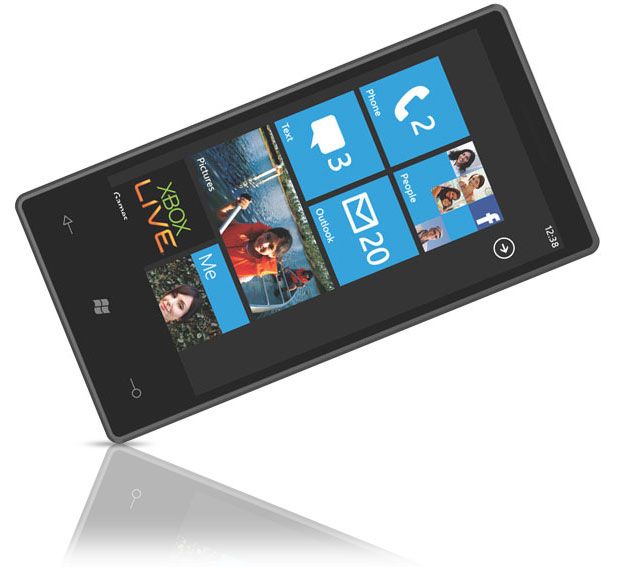 It looks like the Death of the WebOS might be a big benefit to Microsoft and their Windows Phone 7 mobile operating system. After HP announced that they were killing this part of their business model off (along with their most of their Consumer Product division) many developers that were working on WebOS projects had nowhere to turn to and were probably a tad annoyed that they had invested in this technology and now were being left out in the cold.
It looks like the Death of the WebOS might be a big benefit to Microsoft and their Windows Phone 7 mobile operating system. After HP announced that they were killing this part of their business model off (along with their most of their Consumer Product division) many developers that were working on WebOS projects had nowhere to turn to and were probably a tad annoyed that they had invested in this technology and now were being left out in the cold.
Microsoft was right there though letting former WebOS developers know that if they were interested all they had to do was contact Microsoft and they would provide them with all of the Tools needed (Development Kits, Phones, and even training) to get things going under the Windows Phone banner. This was a smart move as, if the reports are to be believed, Microsoft is claiming that over 500 developers have contacted them.
We think that these rumors are more than likely true as many of these developers will want to offset their losses with some free help even if it is from Microsoft.
Discuss this in our Forum
Microsoft promises better USB 3.0 Performance in Windows 8
 We have heard all kinds of rumors and rumblings about Windows 8. So far we have heard all about how it is much more tablet friendly, designed to work with ARM CPUs and that it will be the best user experience that MS has done yet. We have had a look at a few of the demos (not any of the Betas yet though) and can say that it looks interesting, but I am not sure how it will work as an OS. As Windows Vista showed, just having a nice looking UI means nothing if you cannot back it up with performance.
We have heard all kinds of rumors and rumblings about Windows 8. So far we have heard all about how it is much more tablet friendly, designed to work with ARM CPUs and that it will be the best user experience that MS has done yet. We have had a look at a few of the demos (not any of the Betas yet though) and can say that it looks interesting, but I am not sure how it will work as an OS. As Windows Vista showed, just having a nice looking UI means nothing if you cannot back it up with performance.
Fortunately it seems that Microsoft is looking into that. They are talking about making their USB 3.0 stacks more efficient while changing the power profiles to help make battery life a little longer. Microsoft is citing an increase in USB 3.0 devices on the market and user demand for these peripherals as the reason they are working on this. If their claims are true then you might actually see something close to the speeds we were promised from USB 3.0. Personally, I would like them to fix the networking and disk drive stacks first before they worry about peripherals, but that is just me. Still Microsoft is trying I guess, and to make sure their customers know the hard work they have put in they have developed a USB Test Tool called MUTT (Microsoft USB Test Tool). This is designed to show you that USB 3.0 is working. So if you get different results, hey the tool works properly so it must be you right… Be sure to check out the video at the source link.
Source MSDN
Discuss in our Forum
Downloads of Fox shows increase after Fox puts in a delay
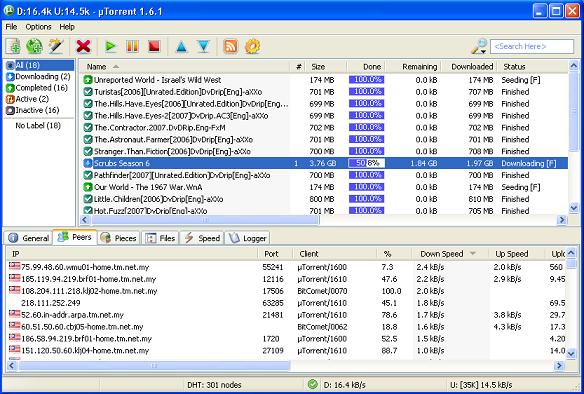 Remember how we told you that Fox was planning to create a larger delay in their online programming available to non-paid Hulu and Fox.com users? Well as you might have expected the people that are not “subscribers”, you know the ones that are being forced to wait longer, are now downloading these same programs from Torrent and other file sharing sites.
Remember how we told you that Fox was planning to create a larger delay in their online programming available to non-paid Hulu and Fox.com users? Well as you might have expected the people that are not “subscribers”, you know the ones that are being forced to wait longer, are now downloading these same programs from Torrent and other file sharing sites.
Right after the original announcement, which was designed (according to Fox) to improve their “authenticated” subscribers viewing experience, there was quite an uproar over the delay. Many felt that it was not about improving anything more than Fox’s revenue. After all no matter the delay the cable and satellite viewers are still getting the same experience.
Of course the timing is important as well, many online viewers are disappointed with the available content services right now. Netflix is raising their rates and managed to kick Windows Media Center and other non-web users off their service for a couple of days. All of this is going on while the ISPs are planning to cap the amount of data you can download each month. It makes us wonder about the state of online content. There seems to be a decided effort to push people away from online content and back to the cable and satellite services. The sad part is that this won’t work, but it will give the content providers and ISPs more ammunition to put restrictions, filters and worse on the internet. The same thing is going to happen with the Anon issue. The more we see this happen the more the powers that be can point to these things and say “see, we told you”.
Discuss this in our Forum
We take the Kingston Wi-Drive out Camping
 Apple is famous for many things. They are famous for making the iPhone and iPad, they are famous for their never ending stream of patents for things that already exist and last but not least they are famous for making sure that you cannot use their mobile products without their approval. You see if you buy an iDevice your core file system is pretty much locked down. Now there are ways to get into the file system and move things around, but it can get messy and things do not always make the transition intact. The other side of this is that there is no way to add more storage to any of their products. It is not like an Android or Windows based tablet with an SD card slot or USB ports. So what can you do if you bought one of the 16GB non-3G iPads or if you only own the iPad touch? Kingston has an answer for you. Kingston has put their expertise in making flash drives to good use and attached a flash drive to a wireless controller that can also act as a wireless bridge. They are calling it the Wi-Drive and when you pair this up with the WiDrive app from the AppStore you might just have a relatively low cost answer to a lot of people’s needs. So follow along as we take a look at the $180 32GB Wi-Drive on a first generation iPad.
Apple is famous for many things. They are famous for making the iPhone and iPad, they are famous for their never ending stream of patents for things that already exist and last but not least they are famous for making sure that you cannot use their mobile products without their approval. You see if you buy an iDevice your core file system is pretty much locked down. Now there are ways to get into the file system and move things around, but it can get messy and things do not always make the transition intact. The other side of this is that there is no way to add more storage to any of their products. It is not like an Android or Windows based tablet with an SD card slot or USB ports. So what can you do if you bought one of the 16GB non-3G iPads or if you only own the iPad touch? Kingston has an answer for you. Kingston has put their expertise in making flash drives to good use and attached a flash drive to a wireless controller that can also act as a wireless bridge. They are calling it the Wi-Drive and when you pair this up with the WiDrive app from the AppStore you might just have a relatively low cost answer to a lot of people’s needs. So follow along as we take a look at the $180 32GB Wi-Drive on a first generation iPad.
Apple caught using more misleading evidence
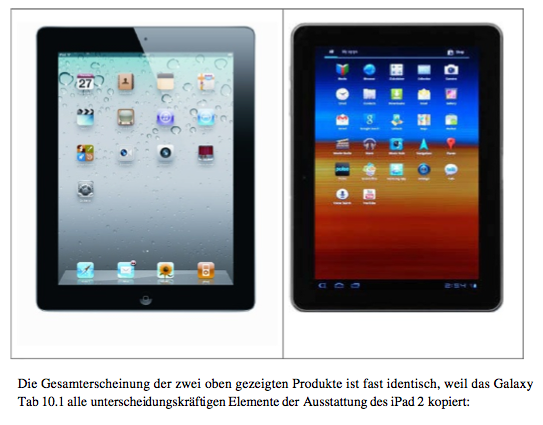 Ok, I could not let this one pass. After hearing about the first instance of inaccurate evidence presented by Apple in court. I honestly thought that occurrence might have been nothing more that old images or an accident involving someone trying to fit both pictures in the same space. However, now we hear about another case where Apple has done exactly the same thing. This time the case in question is in the Netherlands where Apple is trying to get a permanent ban AND a recall of all Galaxy Smart Phones and tablets.
Ok, I could not let this one pass. After hearing about the first instance of inaccurate evidence presented by Apple in court. I honestly thought that occurrence might have been nothing more that old images or an accident involving someone trying to fit both pictures in the same space. However, now we hear about another case where Apple has done exactly the same thing. This time the case in question is in the Netherlands where Apple is trying to get a permanent ban AND a recall of all Galaxy Smart Phones and tablets.
At this point it seems that Apple is willing to lie, cheat and maybe even steal to get what they want (market dominance). I certainly hope that the courts hold Apple responsible on both counts. It is very clear that Apple feels it is above the law in the US where they have led a charmed life with the Patent office and the US International Trade Commission. Now they are taking this to the EU where they managed to get an ex-parte, non-hearing preliminary ban on the Tab 10.1 with inaccurate images as evidence. Thankfully, as of this writing the ban has been lifted (citing jurisdiction issues) in all countries in the EU except Germany. With mounting proof of falsified (or at least wildly inaccurate) visual evidence being used by Apple we would certainly hope these injunction requests are dropped for good and Apple required to face the consequences of their actions.
nVidia's Kepler running a little late
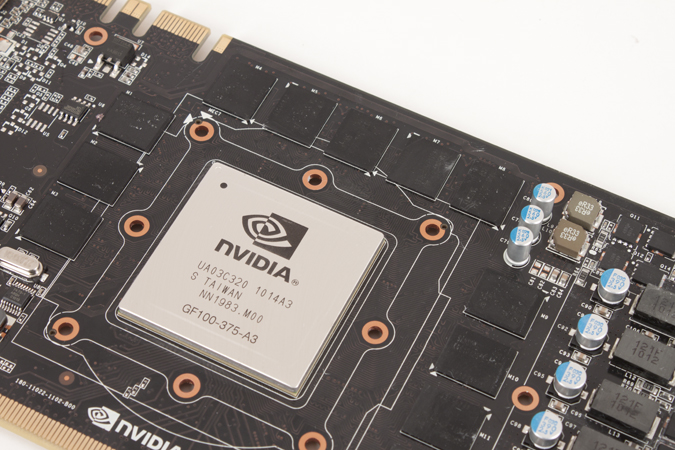 When I hear the name of nVidia’s next-gen GPU code named Kepler all I can hear is Cave Johnson from Portal 2 saying, “Now if you're part of control group Kepler-7, we planted a tiny microchip, about the size of a postcard, into your skull.” It is interesting in that Kepler is supposed to be nVidia’s 28nm GPU offering. True a 28nm GPU is a lot smaller than a post card but the other half of Cave Johnson’s statement does seem to have some very nVidia parallels… “Most likely you've forgotten it's even there, but if it starts vibrating and beeping during this next test let us know, because that means it's about to hit about 500 degrees so we're gonna need to go ahead and get that out of you pretty fast.”
When I hear the name of nVidia’s next-gen GPU code named Kepler all I can hear is Cave Johnson from Portal 2 saying, “Now if you're part of control group Kepler-7, we planted a tiny microchip, about the size of a postcard, into your skull.” It is interesting in that Kepler is supposed to be nVidia’s 28nm GPU offering. True a 28nm GPU is a lot smaller than a post card but the other half of Cave Johnson’s statement does seem to have some very nVidia parallels… “Most likely you've forgotten it's even there, but if it starts vibrating and beeping during this next test let us know, because that means it's about to hit about 500 degrees so we're gonna need to go ahead and get that out of you pretty fast.”
Now, I am saying this with humor, but we have seen some rather hot GPUs from nVidia over the years. If Kepler has the same issues that Fermi had then the first run could be quite the space heater. Of course, if you ask the typical gamer they will more than likely tell you that they do not care as much about the heat as long as the FPS is through the roof.
Which brings us to the real crux of the issue, nVidia has already admitted that they will be at least a month or more behind their original timeline for this release (like Fermi) and they will be far behind AMD’s Southern Islands. In the gaming and GPU market it is often the person that gets to market first that wins the acceptance. This is not like the DX11 shift when it was Fermi Vs the Other Islands from AMD where there were almost no compelling games using that technology. Now we are looking at a few good DX11 games so we are going to see people looking to pounce on the next generation products as long as they are faster than what is currently on the market from both companies and the prices are right.
nVidia really needs to get on the ball to get their timelines back in order or they do stand to lose quite a few Holiday sales to AMD which will hurt their own sales numbers when they finally do get Kepler out the door.
Discuss this in our Forum
HP Ditches WebOS and Spins off PC Business
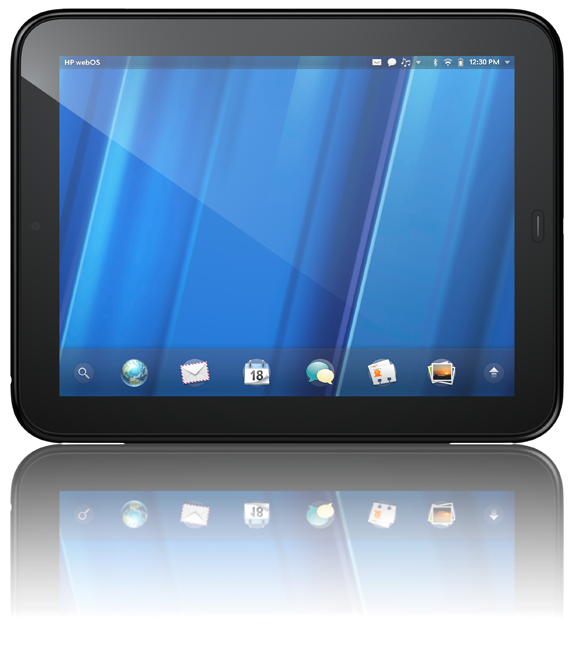 Less than a year ago HP bought Palm for their WebOS and Mobile business. At the time HP made the claim that they were going to move forward with Palm and maintain the mobile side of things. Now they want to shut down the WebOS business and (if the announcement is to be believed) either spin off or close down their PC business. Reading the announcement from HP it sounds like they are cutting some dead weight and cleaning up after some disappointing losses. However, if you dig a little deeper you will find that HP is looking to make a business shift. It is no secret that the consumer market (at least the PC and software market) is something of a loss-leader. This means that you expect to lose a little money on your PC systems while making it back in service, and support costs. The problem is that companies like HP are losing their support money to people like Best Buy, Staples, and others who now have their own service departments that they make money off of.
Less than a year ago HP bought Palm for their WebOS and Mobile business. At the time HP made the claim that they were going to move forward with Palm and maintain the mobile side of things. Now they want to shut down the WebOS business and (if the announcement is to be believed) either spin off or close down their PC business. Reading the announcement from HP it sounds like they are cutting some dead weight and cleaning up after some disappointing losses. However, if you dig a little deeper you will find that HP is looking to make a business shift. It is no secret that the consumer market (at least the PC and software market) is something of a loss-leader. This means that you expect to lose a little money on your PC systems while making it back in service, and support costs. The problem is that companies like HP are losing their support money to people like Best Buy, Staples, and others who now have their own service departments that they make money off of.
This leaves companies like HP (who bought up Compaq thinking that would help sales) out of touch and losing more money than they should on their PCs. So what do you do when this happens? Well you take a leaf from IBM’s book. You sell off your PC business and shift back to the Enterprise. Here you can sell a support contract for $3-4,000 per unit (and more in some cases). Corporations that purchase servers and server accessories demand these and pay for them willingly. So HPs announcements today are nothing more than a way of saying to the community at large “Hey, wanna buy our PC and Mobile divisions? We do not want them anymore”. I would not be surprised to hear about offers for both departments soon.
Now the question is; can HP really compete with IBM and Dell? If a recent shift in enterprise purchases is any indication HP is in for a rough year.
Discuss this in our Foum
Gigabyte A75-UD4H Design and Feature Review
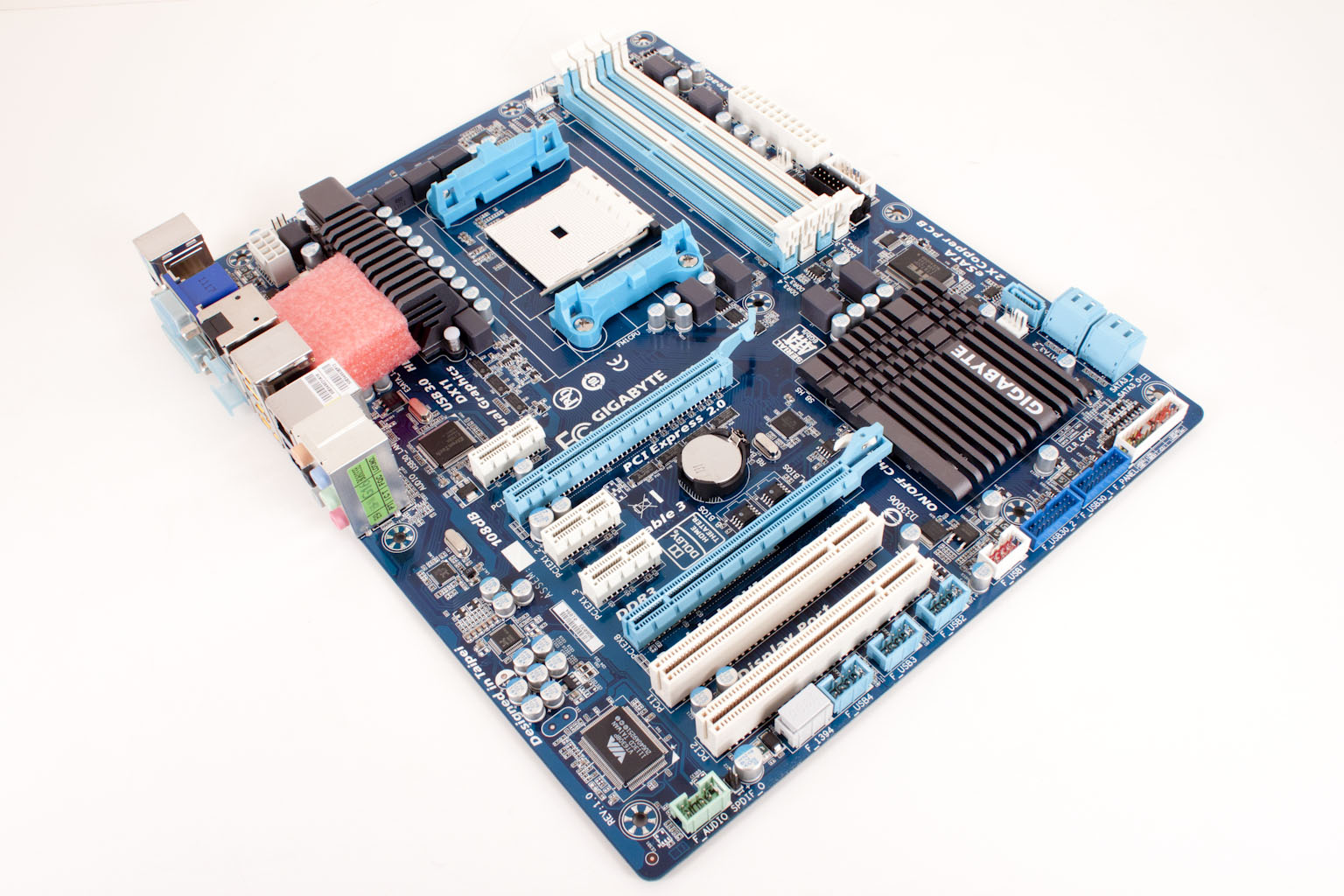 AMD has been throwing the term Fusion around since the early days of the AM2 CPU. We heard rumors of AMD “fusing” the GPU and the CPU together, integrating the MCP (media control processor) into the CPU and a bunch of other stuff. Each of these rumors was dismissed by AMD one at a time. AMD continued to state that Fusion was not a single thing but a platform (of course the media was not going to let that happen). It was only last year when we finally found out what AMD was talking about. It was a CPU with and APU (auxiliary processing unit) that is there to assist in complex tasks that the core CPU was not able to deal with. Interestingly enough this was not a new idea but was actually a return to some of AMD’s roots. AMD began their CPU debut with the purchase of a company called Nexgen. Nexgen CPU did not include a math co-processor (at least the original ones). If you wanted one you could buy one and attach it as an… you guessed it APU. Well many years have passed since that time and we are sure the APU is a little more than a simple math co-processor. Fortunately for you, we have an AMD A6 3650 and a Gigabyte A75-UD4H motherboard to play with. So let’s take a look at this new motherboard from Gigabyte and while we are at it the AMD Llano A6 3650 CPU…
AMD has been throwing the term Fusion around since the early days of the AM2 CPU. We heard rumors of AMD “fusing” the GPU and the CPU together, integrating the MCP (media control processor) into the CPU and a bunch of other stuff. Each of these rumors was dismissed by AMD one at a time. AMD continued to state that Fusion was not a single thing but a platform (of course the media was not going to let that happen). It was only last year when we finally found out what AMD was talking about. It was a CPU with and APU (auxiliary processing unit) that is there to assist in complex tasks that the core CPU was not able to deal with. Interestingly enough this was not a new idea but was actually a return to some of AMD’s roots. AMD began their CPU debut with the purchase of a company called Nexgen. Nexgen CPU did not include a math co-processor (at least the original ones). If you wanted one you could buy one and attach it as an… you guessed it APU. Well many years have passed since that time and we are sure the APU is a little more than a simple math co-processor. Fortunately for you, we have an AMD A6 3650 and a Gigabyte A75-UD4H motherboard to play with. So let’s take a look at this new motherboard from Gigabyte and while we are at it the AMD Llano A6 3650 CPU…
Who Will Benefit more? Google or Motorola?
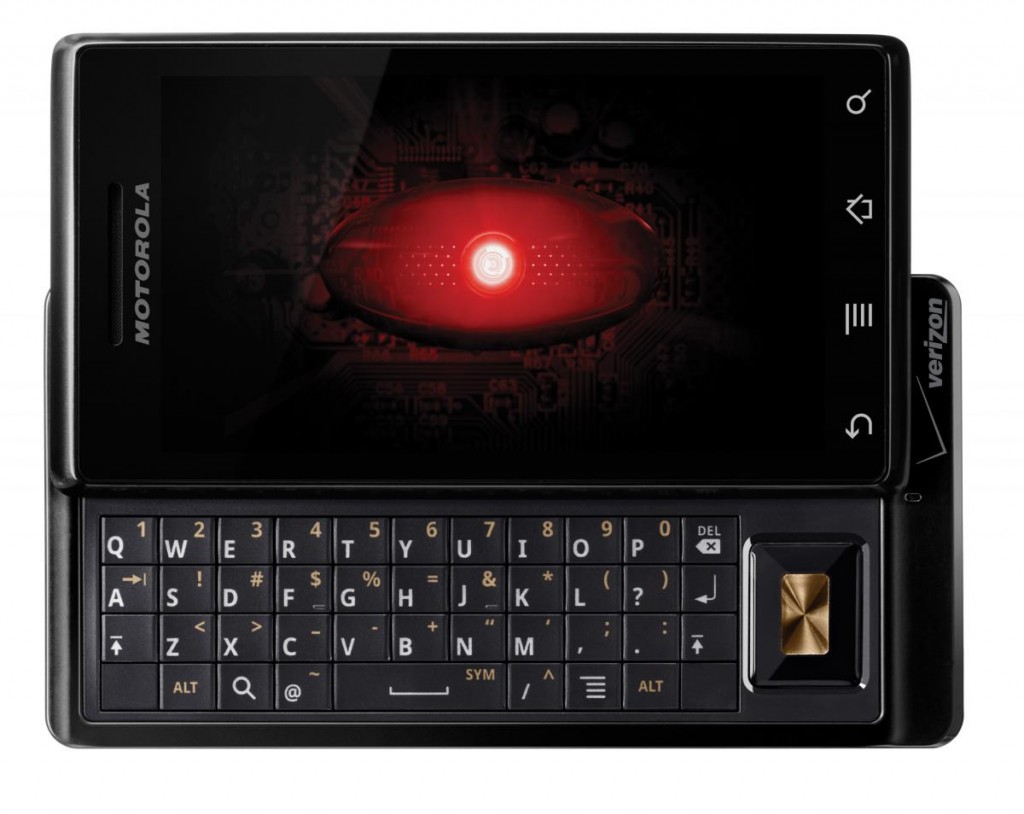 Although the news of Google’s purchase of Motorola Mobility is days old we have to wonder about the slew of articles that have come out recently. We all know (whether we choose to admit it or not) that the purchase of Motorola was to bolster Google position in the market of the mobile OS. They, like others, have a lot to fear from Apple’s seemingly endless supply of accusations of copying, patent infringement and friendly venues. However, the deal is more than that in reality.
Although the news of Google’s purchase of Motorola Mobility is days old we have to wonder about the slew of articles that have come out recently. We all know (whether we choose to admit it or not) that the purchase of Motorola was to bolster Google position in the market of the mobile OS. They, like others, have a lot to fear from Apple’s seemingly endless supply of accusations of copying, patent infringement and friendly venues. However, the deal is more than that in reality.
Motorola has an 82 year legacy of working with wireless (not the wireless we think of today but radios as well). Because of this they not only have a nice stable of patents but also the technology and the innovation to survive in the cut throat world of mobile devices. The problem has been their “IBM” attitude in the past. Anyone that knows (or would like to Google) the IBM culture will know that the uniform was black slacks, white button down and tie. This is what you wore no matter where you worked. Motorola was the same way until very recently. That kind of rigidity in your culture does stifle innovation to a great degree. After all if you always wear the same thing, you can find yourself always thinking the same things. People that are locked down by their environment can become stagnant and, in extreme cases, ineffective.
So adding the fresh and open culture of Google to this can help out the struggling Motorola quite a bit; while the structure of Motorola may also help Google. It also gives Google something they want and need; a direct market for their OS. Google has been slowly closing the “Open Source” of Android with each successive release and we are looking at a completely closed source Kernel and OS in the very near future. Although Google invites other phone makers to use and customize Android’s UI they still want to have phones of their very own and with Motorola’s $86 Million dollar loss on top of their still popular “Droid” line of smart phones I am sure this looked like a ready-made situation for Google.
Motorola does get to keep operating as its own entity (for now) but you can rest assured that Google is also banking on those nice new Patents to keep Apple’s lawyers at bay.
Discuss in our Forum

